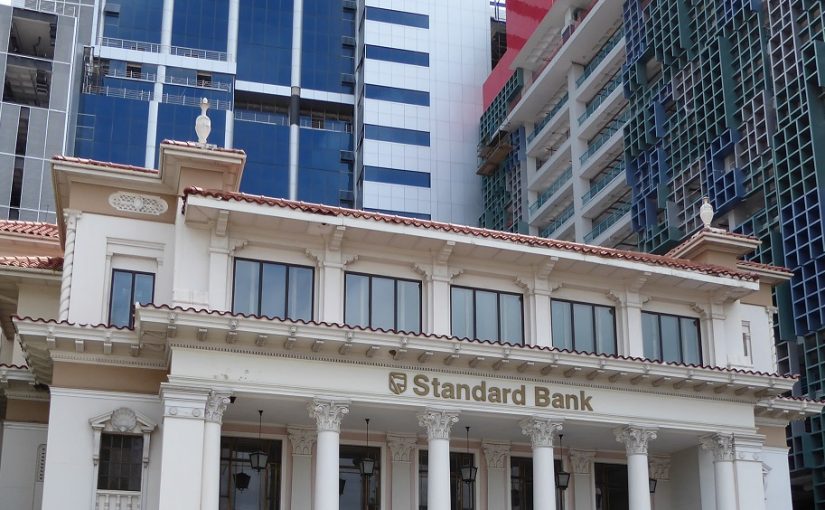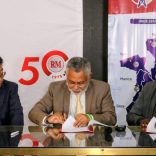Mozambique: Fly Modern ark open to cooperate in LAM forensic audit - AIM report
Mozambique: PMI rises to seven-month high in October – Standard Bank

File photo: Wikimedia Commons
- Softer reductions in output and new orders
- Employment ticks down following rise in September
- Business confidence lowest in almost four years
The start of the fourth quarter of 2020 saw Mozambique’s private sector move closer to stabilisation, according to Standard Bank’s latest Purchasing Managers’ Index released on Wednesday.
Both output and new orders decreased at slower rates and firms raised their purchasing activity. That said, business confidence dropped to the lowest in just under four years and the return to growth of employment seen in September was cancelled out.
The headline figure derived from the Standard Bank’s survey is the Purchasing Managers’ Index™ (PMI™) Readings above 50.0 signal an improvement in business conditions on the previous month, while readings below 50.0 show a deterioration.
“At 48.1 in October, up from 46.6 in September, the headline PMI posted its highest reading since March, prior to the outbreak of Covid-19 in Mozambique,” reads the report.
The index also signalled a modest deterioration in the health of the private sector, and the eighth in as many months.
Signs of improving demand conditions as companies recovered from the Covid-19 lockdown helped the private sector move closer to stabilisation in October.
New orders decreased at a solid pace, albeit one that was the slowest in the current seven-month sequence of decline. Where new business decreased, panellists reported that customer numbers remained low.
Meanwhile, the pace of contraction in business activity slowed for the sixth consecutive month from April’s record. That said, there were still some reports that the pandemic impacted negatively on output.
After having returned to growth in September, employment decreased fractionally in October amid a continued lack of pressure on capacity.
Purchasing activity increased, however, thereby ending a six-month sequence of decline. Competition among suppliers led them to shorten their delivery times for the second month running, while stocks of purchases were broadly unchanged.
Although purchasing increased marginally in October, overall demand for inputs remained relatively weak. Therefore, suppliers reduced their charges and purchase costs in the private sector decreased for the seventh successive month. In contrast, staff costs increased marginally, and for the first time since March.
Companies in Mozambique raised their own selling prices for the fourth month running in October, albeit at a marginal pace that was the slowest since July.
Despite signs of improving demand conditions during the month, business confidence dropped to the lowest since November 2016. Those panellists that did predict growth of output over the coming year linked this to predictions of stronger demand and business expansion plans.
Fáusio Mussá, Chief Economist – Mozambique at Standard Bank commented:
“Both economic activity and business sentiment in Mozambique remains depressed, negatively impacted by the Covid-19 pandemic, ongoing security challenges and limited scope for both monetary and fiscal policies to stimulate a recovery. As per our base growth scenario, we only see the economy exiting recession during the second quarter of 2021, which should yield an average growth rate of 2% y/y for the year, from an expected contraction of 1.3% y/y this year.
“The pause on interest rate easing cycle from Central Bank reflects increased risks to the inflation outlook, ongoing currency and fiscal pressures. As a result, we see the main policy interest rate, MIMO, being kept on hold at the current level of 10.25% level for a prolonged period, with the prime lending interest rate likely to remain stable at 15.9%. We maintain expectations that inflation will likely increase, from an average slightly above 3% y/y this year to 6.1% y/y in 2021, pressurised by a weaker Metical.
“The USD/MZN pair continues to raise, closing October towards the 73.19 level, up by 19.1% ytd and by 16.5% y/y. Ongoing foreign exchange (FX) liquidity pressures in the market has potential to continue to drive the USD/MZN pair upwards. Our year end expectations remain at the 77 mark, some 5.2% higher than current trading levels. Both peace and structural reforms to foster investment outside the resources sector are required to improve sentiment.”
- You may read, download the full Standard Bank’s Purchasing Managers’ Index HERE












Leave a Reply
Be the First to Comment!
You must be logged in to post a comment.
You must be logged in to post a comment.